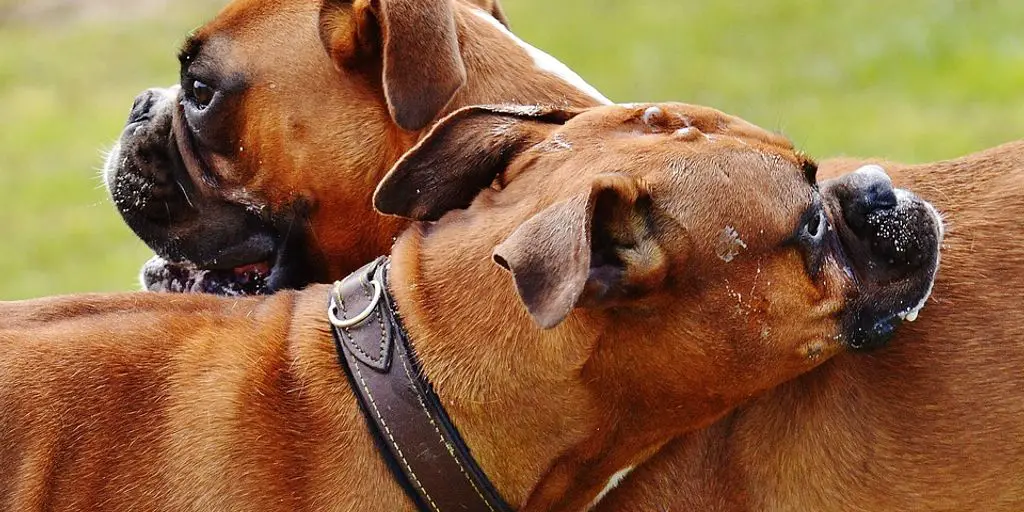Noticing white specks in your dog’s poop can be concerning for any pet owner. These specks can be caused by a variety of factors, ranging from harmless undigested food particles to more serious issues like parasitic infections. Understanding the potential causes and knowing when to seek veterinary advice is crucial for maintaining your dog’s health.
Key Takeaways
- White specks in dog poop can be caused by undigested food particles, parasites, or calcium deposits from bones.
- Common parasitic causes of white specks include tapeworms, roundworms, and hookworms.
- Persistent white specks in your dog’s poop, along with other symptoms like weight loss or lethargy, warrant a vet visit.
- Your dog’s diet, including kibble, raw food, or homemade meals, can influence the appearance of their poop.
- Regular deworming and maintaining a clean living environment are essential for preventing parasitic infections in dogs.
Common Causes of White Specks in Dog Poop

When you spot white specks in your dog’s poop, it can be a bit alarming. But don’t worry, there are several common reasons for this, and not all of them are cause for concern. Let’s break down the usual suspects.
Undigested Food Particles
Sometimes, your dog’s digestive system doesn’t completely break down certain foods. This can result in undigested bits of food appearing in their poop. This is usually a one-time thing, but if you notice it happening frequently, it might be worth looking into other causes.
Parasites and Worms
One of the more concerning causes of white specks in dog poop is parasites, like worms. These can include tapeworms, which often look like small grains of rice. If you see moving white specks, it’s time to consult your vet.
Bone Bits or Calcium Deposits
If your dog has been gnawing on bones, you might see small bone fragments or calcium deposits in their poop. These are usually harmless but can sometimes cause digestive issues if they accumulate.
If you notice persistent white specks in your dog’s stool, it’s more likely to be related to other factors such as parasites, liver issues, or dietary problems. Reach out to your vet, who will be able to assist with determining the underlying cause and providing a treatment plan.
Identifying Worms in Your Dog’s Poop
When you spot white specks in your dog’s poop, it could be a sign of worms. Let’s break down the common types you might encounter.
Tapeworms
Tapeworms are probably the most common worms you’ll find. They look like tiny grains of rice and are often seen moving. These segments, called proglottids, contain eggs that are released into the environment through your dog’s poop. If you notice these rice-like segments, it’s time to take action.
Roundworms
Roundworms are another type you might see. These worms are long and spaghetti-like. They can be quite alarming to find, but they’re a clear indicator that your dog needs treatment. Roundworms are usually visible in the stool, making them easier to identify.
Hookworms
Hookworms are a bit trickier. They are rarely seen in the stool because they latch onto the intestinal lining. However, they can cause significant health issues for your dog, including anemia and weight loss. If you suspect hookworms, a vet visit is essential for proper diagnosis and treatment.
Spotting worms in your dog’s poop is never pleasant, but it’s crucial for their health. Regular deworming and vet check-ups can help keep these parasites at bay.
When to Worry About White Specks
Seeing white specks in your dog’s poop can be concerning, but it’s important to know when to take action. Here are some key signs to watch for that might indicate a more serious issue.
How Diet Affects Your Dog’s Poop
Impact of Kibble
Kibble, or dry dog food, is a popular choice among pet owners due to its convenience and long shelf life. However, it can sometimes lead to firmer stools because of its low moisture content. If your dog is on a kibble diet, make sure they have plenty of water to stay hydrated. Some dogs might also experience digestive issues if the kibble contains too many fillers or artificial ingredients.
Raw Food Diet
Switching to a raw food diet can have noticeable effects on your dog’s poop. Owners might observe that their dogs produce smaller, firmer, and less smelly stools. This is because a raw diet, typically rich in proteins and low in fillers, is easier for dogs to digest. However, it’s crucial to ensure that the raw food is balanced and safe to avoid any nutritional deficiencies or health risks.
Homemade Dog Food
Preparing homemade dog food allows you to control the ingredients and ensure your dog gets a balanced diet. This can lead to healthier and more consistent stools. However, it’s important to consult with a vet or a pet nutritionist to make sure the homemade meals meet all of your dog’s nutritional needs. Homemade diets can be a great way to avoid fillers and artificial additives found in some commercial dog foods.
Preventing Parasites in Dogs
Keeping your dog free from parasites is crucial for their overall health. Here are some practical steps you can take to ensure your furry friend stays parasite-free.
Regular Deworming
Regular deworming is essential. I make sure to deworm my dog every three to six months. This routine helps keep harmful worms like heartworms and hookworms at bay. Your vet can recommend the best deworming schedule and products for your dog.
Clean Living Environment
Maintaining a clean living environment is another key step. I regularly clean my dog’s bedding and living areas to prevent any parasite infestations. This includes washing their bedding in hot water and vacuuming frequently.
Safe Outdoor Practices
When it comes to outdoor activities, I always keep an eye on my dog. Avoiding areas known for high parasite activity, like tall grass and stagnant water, can make a big difference. Additionally, using a monthly tick and flea control medication can provide 360-degree protection for your dog.
Prevention is always better than cure. By taking these steps, you can help ensure your dog stays healthy and parasite-free.
What to Do If You See White Specks

Immediate Steps to Take
First things first, don’t be immediately alarmed — white specks in dog poop can be harmless. Check the specks for movement — take a close look at the stool for more than a few seconds. If they’re static, it might not be cause for concern. However, if they’re moving, it’s a different story, and your dog might have an infection. Remember to look closely — sometimes, the specks can appear motionless before a sudden twitch.
When to Consult a Vet
If you spot moving white specks, calm down and don’t panic. Collect a fresh stool sample and take it to your vet for analysis. Identifying the specific type of parasite causing the white specks is essential in determining the appropriate course of treatment. Also, take stock of your dog’s overall behavior and health. If your dog’s behavior is largely unchanged and the white specks are minimal, it might not be cause for immediate concern; it may simply be a case of undigested food.
Home Remedies
While waiting for the vet appointment, you can try some home remedies to ease your dog’s discomfort. Ensure your dog stays hydrated and consider adding a bit of plain pumpkin to their diet to help with digestion. However, these are just temporary measures and should not replace professional veterinary advice.
White specks can have a variety of causes, so it’s crucial to monitor your dog’s health closely and seek professional help when needed.
Understanding Your Dog’s Digestive Health
Fiber plays a crucial role in your dog’s digestive health. It helps regulate bowel movements and can prevent constipation. Including the right amount of fiber in your dog’s diet can also aid in weight management. A balanced diet with adequate fiber ensures that your dog’s digestive system functions smoothly.
Hydration is vital for maintaining a healthy digestive system in dogs. Water helps break down food and absorb nutrients more efficiently. Make sure your dog always has access to fresh water, especially after meals and exercise. Dehydration can lead to serious digestive issues, so keeping your dog well-hydrated is essential.
Digestive enzymes are proteins that help break down food into nutrients that your dog’s body can absorb. These enzymes are naturally produced in the pancreas, but sometimes supplementation is needed, especially for dogs with digestive issues. Adding digestive enzyme supplements to your dog’s diet can improve nutrient absorption and overall digestive health.
Understanding and supporting your dog’s digestive health is crucial for their overall well-being. A healthy digestive system not only ensures proper nutrient absorption but also contributes to a happier, more active life for your furry friend.
Common Misconceptions About Dog Poop
Let’s dive into some of the most common myths about dog poop and set the record straight. Dog poop can tell you a lot about your dog’s health, so it’s important to know what’s true and what’s not.
Myths About Worms
One of the biggest misconceptions is that all white specks in dog poop are worms. While it’s true that worms can cause white specks, there are other causes too, like undigested food particles or even fly eggs if the poop has been left out for a while. So, before you panic, make sure to consider all possibilities.
Misunderstood Dietary Effects
Another myth is that a dog’s diet doesn’t affect the appearance of their poop. In reality, what your dog eats can significantly impact their stool. For example, a diet high in calcium can lead to white specks in the poop. So, if you notice changes, it might be time to evaluate their diet.
False Alarms
Lastly, not every change in your dog’s poop is a cause for immediate concern. Sometimes, minor changes are just a part of their natural digestive process. However, if you notice persistent issues, it’s always best to consult your vet.
Remember, understanding your dog’s poop can help you catch potential health issues early. So, don’t ignore it—get up close and personal if you have to!
Veterinary Treatments for Worms
When it comes to dealing with worms in dogs, veterinary treatments are often the most effective. While some pet owners might try to handle the issue on their own, it’s always best to consult a vet for a proper diagnosis and treatment plan. Here are some common treatments your vet might recommend:
Prescription Medications
Your vet may prescribe medications like Bayer Tapeworm Dewormer Tablets or Drontal Plus Tablets. These are specifically formulated to target and eliminate various types of worms. Depending on the severity of the infection, the treatment might be administered orally over a few days or through an injection.
Over-the-Counter Solutions
There are also over-the-counter options available, such as Praziquantel, which can be effective against tapeworms. However, it’s crucial to discuss proper treatment options and safe dosage amounts with your vet before administering any medication.
Natural Remedies
For those who prefer a more holistic approach, some natural remedies can help. Ingredients like pumpkin seeds and garlic are believed to have anti-parasitic properties. However, these should be used cautiously and ideally under the guidance of a vet.
Always consult your vet before starting any treatment to ensure it’s safe and effective for your dog.
In summary, while there are various ways to treat worms in dogs, consulting a vet ensures that your furry friend gets the most appropriate and effective treatment.
Monitoring Your Dog’s Health Through Poop
One of the most important indicators of Fido’s health is not necessarily one of your favorite parts of pet ownership, but your dog’s poop will often give you the scoop on his overall health. Read on for a healthy dog poop chart and information that will reveal exactly what your dog’s poo is telling you.
What Healthy Poop Looks Like
When checking out your dog’s poop, it might help to know a little more about what indicates that it’s healthy. Specifically, you want to think about the four Cs: color, consistency, content, and coating.
Changes to Watch For
When scooping poop, it’s a good idea to monitor your dog’s doo-doo, as you can gain some valuable insights into your dog’s health and well-being. Pay attention to subtle changes that could indicate something may be afoot, like changes in color, consistency, and frequency.
Regular Vet Check-Ups
Long story short, dog poop is important. Stools can tell you a lot about your dog’s health. It’s smart to familiarize yourself with their feces so that you know what normal stool looks like. If white specks do come up and you’re not quite sure if they’re worms, it’s always best to check with your vet.
Conclusion
So, there you have it! White specks in your dog’s poop can be a bit unsettling, but they’re not always a cause for panic. From harmless undigested food particles to more concerning issues like parasites, it’s essential to keep an eye on your furry friend’s poop. If you notice these white specks consistently or if they’re moving, it’s best to consult your vet to rule out any serious health problems. Remember, your dog’s poop is a window into their overall health, so regular monitoring can help you catch any issues early. Keep your pup healthy and happy by staying informed and proactive!
Frequently Asked Questions
What causes white specks in dog poop?
White specks in dog poop can be caused by undigested food particles, parasites and worms, bone bits, or calcium deposits.
How can I tell if the white specks in my dog’s poop are worms?
If the white specks in your dog’s poop are moving, it’s likely they are worms such as tapeworms, roundworms, or hookworms. Non-moving specks are usually undigested food or calcium deposits.
Is kibble a common cause of white specks in dog poop?
Kibble can sometimes cause white specks in dog poop if it contains indigestible particles or if your dog has difficulty digesting it. However, it’s not the most common cause.
When should I be concerned about white specks in my dog’s poop?
You should be concerned if the white specks are moving (indicating worms), if they persist over several bowel movements, or if your dog shows other symptoms like weight loss or lethargy.
Can a raw food diet cause white specks in my dog’s poop?
Yes, a raw food diet can cause white specks in your dog’s poop, especially if it includes bone bits or high calcium content that isn’t fully digested.
What should I do if I see white specks in my dog’s poop?
If you see white specks in your dog’s poop, monitor for other symptoms and take a sample to your vet for analysis. Immediate steps include checking for movement in the specks and ensuring your dog is up to date on deworming.
Are there home remedies for white specks in dog poop?
While some home remedies may help, it’s best to consult a vet for a proper diagnosis and treatment plan. Regular deworming and a balanced diet can help prevent issues.
How often should I deworm my dog to prevent white specks in poop?
It’s generally recommended to deworm your dog every three months, but consult your vet for a schedule tailored to your dog’s specific needs and lifestyle.


